Stanford Law School General Postgraduate Public Interest Fellowships
Stanford Law School’s Levin Center for Public Service and Public Interest Law offers postgraduate Public Interest Fellowships which enable our graduates to work full-time for a year in a law-related endeavor designed to further the public interest. These include both general postgraduate Stanford Law School fellowships on any public interest issue (the subject of this page) and those targeting specific substantive areas (e.g., international, criminal defense, criminal justice, and environmental law, education law, or youth law). There are slightly different eligibility requirements for each program, but there will be one joint application process for these fellowships. Finalists will be invited to an interview with the selection committee.
There are separate application processes for SLS graduates interested in the Sullivan and Cromwell Fellowship at Public Counsel and the International Court of Justice University Traineeship Fellowship. These two programs directly choose the Fellows themselves.
Please review the FAQ on our Fellowship Program and direct any questions regarding the fellowship to Levin Center staff.
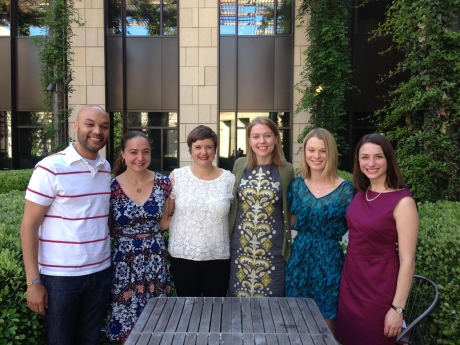
Six graduates chosen as Fellows were reunited at the 2013 Stanford Public Interest Law Foundation’s pre-auction reception. Left to right: Michael Caesar, JD ’11; Shira Levine, JD ’12; Maureen Keffer, JD ’11; Meredith Johnson, JD ’12; Christy Holstege, JD ’12; and Stephanie Klitsch, JD ’12.
Testimonials
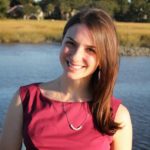
“I am incredibly grateful for my SLS postgraduate public interest fellowship. It enabled me to do meaningful work at a wonderful nonprofit organization straight out of law school.”
– Stephanie Klitsch, JD ’12, Assistant Director of Individual Advocacy, Council for Children’s Rights
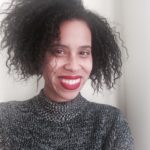
“My SLS post-graduate fellowship allowed me to gain a foothold in the New York public interest market, which is highly competitive. Because of the litigation skills I developed during my fellowship, I eventually landed my dream job as a Housing Attorney in the Tenant Rights Coalition at Brooklyn Legal Services, where I represent low-income Brooklyn tenants in individual and building-wide cases. I couldn’t be happier, and am so grateful to SLS for investing in my career.”
– Chantal Johnson, JD ’14, Staff Attorney, Brooklyn Legal Services
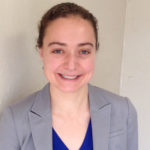
“The Stanford Fellowship launched my public interest career and gave me the opportunity and skills to advocate on behalf of immigrant workers, an area I am deeply passionate about.”
– Shira Levine, JD ’12, Staff Attorney, Immigration Institute of the Bay Area
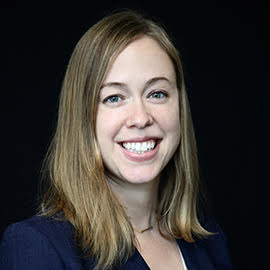
“My Stanford Fellowship allowed me to provide critically needed legal assistance to immigrants in the underserved Central Valley, and it launched my career as a public interest lawyer. I’m very thankful for SLS’s generous support.”
– Katie Traverso, JD ’12
Eligibility
There are 10 general fellowships positions available in addition to the six specialized fellowships outlined on their respective webpages.
All members of the graduating SLS JD Class and three prior classes who have not previously been awarded a postgraduate legal fellowship or government honors/new attorney program position are eligible to apply for the general SLS postgraduate public interest fellowships. Current students must be in good standing to be eligible.
These fellowships can be placements at any domestic non-profit organization (including labor unions) or international tax-exempt non-governmental organization that provides legal services for underrepresented communities or otherwise serves the public interest. Placement at local, state, and federal governmental agencies are also possible, although applicants should be aware that most governmental agencies cannot accept funds directly from Stanford. This means Stanford would pay the Fellows directly and the Fellows incur additional responsibilities as independent contractors (e.g., handling tax withholdings). Clerkships with international tribunals are also eligible. Applicants seeking placements overseas must consult with Kevin Lo, director of international public interest initiatives, by Dec. 13, 2023.
Stanford University entities (e.g., clinics, programs, and centers) are ineligible to host an SLS Postgraduate Fellow.
Application Process
The 2024-2025 application is due Monday, February 5, 2024 and interviews will be held in early March. Interview slots will be available on Saturday, March 2 as well as some weekday afternoons (between 4-6 pm PST) the week of March 4. The Fellows will be selected by the end of March 2024.
Please address all questions regarding the fellowship to Shannon Al-Wakeel.
There is one application for all SLS applicants interested in 16 2024-2025 fellowships (10 general, 1 Civitas, 1 criminal defense, 2 Deane F. Johnson Fellowships, and 2 international fellowships).
Each applicant should also request that their host organization submit a commitment letter. We provide two samples here:
Domestic fellowship host organization’s commitment letter
International fellowship host organization’s commitment letter
After the Fellows are selected and before payment can be disbursed, each host agency is also expected to sign a Memorandum of Understanding outlining each party’s responsibilities. International or governmental hosts who cannot accept the funds from Stanford would sign this Memorandum of Understanding, which grants the funds directly to the Fellow.
The Selection Committee includes members of the faculty and alumni who previously served as an SLS Fellow. Selection will occur by the end of March each year.
In reviewing each application, the committee will consider several factors, including:
- the applicant’s commitment to a career in public interest law,
- the applicant’s capacity to maximize the fellowship opportunity,
- the applicant’s contributions to the public interest community at SLS,
- the potential impact of the applicant’s work, and
- the capacity of the sponsoring organization to provide meaningful supervision to the fellow.
In evaluating these factors, the committee will look to the application and accompanying essays, law school record, recommendations, and organizational letter of support.
The fellowship will last for one year, beginning in or after September 1 (with flexibility regarding exact start dates).
Frequently Asked Questions
Stanford Law School’s Levin Center for Public Service and Public Interest Law offers postgraduate Public Interest Fellowships which enable our graduates to work full-time for a year in a law-related endeavor designed to further the public interest. These include both general postgraduate Stanford Law School fellowships on any public interest issue (the subject of this page) and those targeting specific substantive areas given donor preferences (e.g., international, criminal defense, criminal justice, or environmental law, education law, or youth law).
The fellowship program was established in 2008 in partnership with the Stanford Public Interest Law Foundation. Starting with the 2014-2015 fellowship year, the fellowship positions became wholly funded by Stanford Law School.
There are slightly different eligibility requirements for each SLS-administered program due to donor preferences. Finalists will be interviewed by a selection committee composed of faculty and alumni (including an alum who is a former SLS Fellow).
There are separate application processes for SLS graduates interested in the Sullivan and Cromwell Fellowship at Public Counsel and the International Court of Justice University Traineeship Fellowship. These two programs directly choose the Fellows themselves.
Each fellowship will include a grant of up to $60,000. This is typically a salary of $48,000 and the same benefits that the host organization would ordinarily provide to an employee at the recipient’s level. SLS will reimburse the host for up to $12,000 in benefits (so hosts whose benefits' packages cost less will not receive the full $60,000). A Fellow’s salary may be adjusted upward due to statutorily defined minimum salaries for exempt employees, but the maximum grant from SLS for salary and benefits will still be $60,000.
Fellows are typically employed by their nonprofit hosts, who will receive a grant from Stanford Law School for salary and benefits. The host may choose to supplement our grant and increase the Fellows’ salary and benefits at its discretion. Applicants who wish to serve as Fellows with governmental agencies or intergovernmental entities that cannot accept grants from Stanford Law School can be paid directly. However, there can be additional costs and delays when payment is made directly to the Fellows as they must handle all tax withholdings and the logistical challenges of working as an independent contractor.
The Law School’s Loan Repayment Assistance Program will provide additional funds directly to JD alumni to meet qualifying educational loan repayment obligations during the fellowship year. Note: any Fellow who is paid directly by Stanford Law School will not be eligible for the Federal Public Service Loan Forgiveness Program since the Fellow is not employed by an eligible employer.
Only graduates of Stanford Law School are eligible to apply for an SLS Fellowship. The current graduating JD class and members of the two prior graduating JD classes who have not previously been awarded a postgraduate legal fellowship or government honors/new attorney program position are eligible to apply for all SLS postgraduate public interest fellowships. Current students must be in good standing to be eligible.
The current graduating class of advanced degree students and members of the two prior graduating classes of advanced degree students who have not previously been awarded a postgraduate legal fellowship or government honors/new attorney program position are eligible to apply for the SLS International Public Interest Fellowship. Current students must be in good standing to be eligible.
We accept applications for fellowships hosted at any domestic 501(c)(3) non-profit organization or international tax-exempt non-governmental organization that provides legal services for underrepresented communities or otherwise serves the public interest. Sponsoring entities are not required to make any financial contributions toward the Fellow’s salary or benefits but must demonstrate their ability to support the Fellow (e.g., appropriate supervision, adequate office space, resources to support program expenses).
Placement at local, state, and federal governmental agencies in the United States are also possible, although applicants should be aware that most governmental agencies cannot accept funds directly from Stanford. This means Stanford would pay the Fellows directly and the Fellows incur additional responsibilities as independent contractors (e.g., handling tax withholdings). Clerkships with international tribunals are also eligible.
Stanford University entities (e.g., clinics, programs, and centers) are INELIGIBLE to host a SLS Postgraduate Fellow.
SLS makes no recommendations regarding specific fellowship sponsors or guarantees that placement will be feasible and/or permitted with all potential sponsors or in all foreign jurisdictions. However, every host organization or entity is required to comply with basic nondiscrimination policies of the law school.
This number may vary each year. We have several fellowship programs with specific donor preferences. For the 2023-2024 fellowship year, we will have one Civitas Fellow, one Criminal Defense Fellow, two International Fellows, two Deane F. Johnson Fellows, ten general SLS Postgraduate Fellows, and possibly one International Court of Justice Traineeship Fellow (if ICJ chooses a Stanford Law School applicant).
Yes, SLS graduates/graduating students who meet the eligibility requirements may apply for more than one program. There is one joint application for SLS Fellowships. Simply check the appropriate boxes to be considered for multiple fellowship programs.
There are separate applications for the Sullivan and Cromwell Fellowship at Public Counsel and the International Court of Justice Traineeship Fellowship.
You should first identify your interest area and locate a host organization or agency. We recommend that you consult with a member of the Levin Center staff early on in this process to help with both the application to locate a host organization and to draft the application itself. We are available to review your drafts and strongly urge you to consult with us as you develop your application. You should note that you do NOT need to launch a new or special project.
Faculty and alumni are voting members of the Selection Committee. There is always at least one former SLS Fellow serving as a voting member of the Selection Committee. The Levin Center staff help manage the selection process but do not have a vote since many applicants seek fellowship application counseling from Levin Center staff.
In reviewing each application, the committee will consider several factors, including:
- the applicant’s commitment to a career in public interest law,
- the applicant’s capacity to maximize the fellowship opportunity,
- the applicant’s contributions to the public interest community at SLS,
- the potential impact of the applicant’s work, and
- the capacity of the sponsoring organization to provide meaningful supervision to the fellow.
There are no preferences for specific practice areas. Interested applicants can review the list of past Fellows and where they worked on the SLS website. A list of general SLS Fellows can be found below. This is the list for Civitas Fellows, the list for Criminal Defense Fellows, the list for Deane F. Johnson Fellows, and the list for International Fellows.
Note: there is a disproportionate number of past SLS Fellows who worked in criminal defense, environmental law, and international human rights because there are few external funders supporting these areas. Thus, there are usually a higher number of applicants seeking support in these areas.
Applicants do not need to propose creation of a new project but should outline the responsibilities they anticipate undertaking if selected. This might include documenting the need for legal services in this particular area, how the potential host is well-suited to hosting a Fellow to address that need, and the Fellow’s past experience working on these issues. The fellowship is for only one year, so we do not expect applicants to propose formal projects with specific benchmarks. Rather, we hope the Fellowship offers the opportunity for our graduates to contribute meaningfully and launch their public interest careers.
The process is competitive but the actual number of applicants tends to be relatively low. For example, over the past five years, we received between 14 and 24 applications for 12-16 fellowship positions. These numbers do not include applicants for the Sullivan & Cromwell Fellowship at Public Counsel or the International Court of Justice Fellowship as applicants apply separately for those positions.
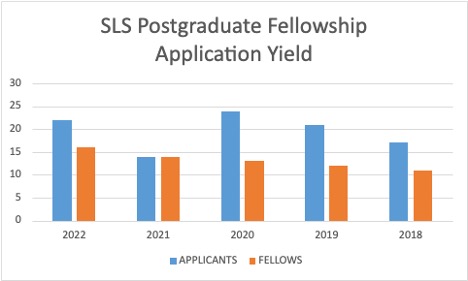
We are inspired and humbled by the number of incredible applications to our fellowship program, which means that each year candidates with impressive achievements and strong potential are not selected. The Selection Committee carefully considers the many factors identified in the earlier FAQ answer above. Applicants should aim to craft compelling essays that address those criteria and seek letters of recommendation that can reaffirm and amplify the same points.
The Selection Committee usually makes its decisions within one week of the interviews. In some years, the decisions are made by the end of the day of interviews, but applicants should plan for up to a week to receive notification.
We allow finalists the opportunity to hold their offer open in case they are still considering other opportunities (e.g., Equal Justice Works may still be evaluating applicants in March or April). Finalists sometimes decline the SLS Fellowship offer if they receive another offer. Thus, we may maintain a small pool of alternates in case a fellowship is available after the typical notification period.
Current and Previous Fellows
Stanford Law School established our Postgraduate Public Interest Fellowship program in 2007 to help our graduates to launch their public interest careers. The program alumni listed below represent those graduates selected for general fellowships. Please see the other fellowship program pages to view the list of those Fellowship alumni.
The ten 2023-2024 general SLS Fellows are:
- Royce Chang, JD ’23, will assist with San Francisco City Attorney’s Office affirmative litigation docket and investigations related to wage theft, employee misclassification, and other abusive workplace practices. He will also advise San Francisco’s Office of Labor Standards Enforcement (OLSE);
- Billy Eck, JD ’23, will hold New York accountable for its failure to provide an appropriate response to its mental health crisis that does not stigmatize or risk harming those with mental health disabilities and assist in building a more humane response system;
- Yi Li, JD ’23, will join Public Counsel to protect and expand the informational privacy rights of youth accessing extended foster care through litigation, organizing, and capacity-building;
- Marisa Lowe, JD ’23, will join the White House Gender Policy Council to support efforts to advance gender equity and equality, including the pursuit of policies protecting reproductive rights, combatting gender-based violence, and promoting economic security and participation;
- Jared Milfred, JD ’23, will join Communication Workers of America District 1, where he will support the union’s campaigns to unionize new groups of workers. He will also help with negotiating agreements, arbitrating disputes, and litigating cases before the NLRB;
- Garrett Muscatel, JD ’23, will participate in the Voting Rights Project’s nationwide litigation efforts to combat voter suppression in advance of the 2024 elections with a focus on protecting the rights of college students under the 26th Amendment;
- Catherine Rocchi, JD ’22, will join the Alaska Public Interest Research Group to develop legal strategies that strengthen the Trans-Alaska Pipeline System’s dismantling, removal, and restoration requirements, in addition to advocating for improved Railbelt utilities;
- Tim Rosenberger, JD ’23, will join the International Fellowship of Metropolitan Community Churches to build a network of legal service centers across the country, and he will work with volunteers in these centers to provide direct legal service; and
- Nathan Tauger, JD ’23, will join Mountain State Justice to represent low-income West Virginians in immigration, employment, consumer protection, and institutional civil rights matters.
The nine 2022-2023 general SLS Fellows were:
- Jody Bianchini, JD ’22, worked with Equip for Equality’s Special Education Clinic to implement new legislation prohibiting restraint and seclusion practices in Illinois schools by representing affected students with disabilities, conducting outreach to families and community organizations, and monitoring compliance;
- Cam Clevidence, JD ’21, worked with Upper Seven Law on Montana-focused civil rights litigation and concentrate on protecting voting rights and combating unconstitutional laws coming out of Montana’s state legislature;
- Bruce Easop, JD ’22, joined the National Center for Youth Law to support the Education Civil Rights Alliance and combat the discriminatory use of school threat assessments against students with disabilities and students of color;
- Charlotte Hendren, JD ’22, worked with the Constitutional & Administrative Law Division of the MA Attorney General’s Office in Boston, on a wide range of issues as diverse as child welfare, election regulation, taxation, firearms safety, and environmental and housing permitting;
- Christopher Meyer, JD ’22, pushed for stricter federal regulation of greenhouse gas emissions through administrative rulemaking and impact litigation in federal courts with the Natural Resources Defense Council;
- Lili Nimlo, JD ’22, represented wrongfully convicted prisoners and litigate cases involving manifest injustice throughout Arizona as a fellow with the Arizona Justice Project;
- Meghan Palmer, JD ’20, joined the MacArthur Justice Center’s Supreme Court and Appellate Program and represented survivors of sexual assault and violence in prison in their appeals to improve the ability of prisoners to assert civil rights claims;
- Jacob Seidman, JD ’22, focused on enhancing state and local governments’ capacity for affirmative litigation and strategic enforcement to secure the rights of workers, tenants, and marginalized communities in the face of abusive corporate and state practices with the Public Rights Project; and
- Frances Tinney, JD ’22, joined the Center for Biological Diversity to stop warehouse construction that destroys wildlife habitats, enhances racial and economic disparities, chokes residents with toxic air, and leaves communities in danger of devastating fires, through litigation and policy change.
The nine 2021-2022 general SLS Fellows were:
- Jacob Addelson, JD ’19, worked at the Disability Law Center in Boston, providing individual representation and pursuing systemic litigation and advocacy to advance the housing rights of individuals with disabilities;
- Connor Hayes, JD ’21, joined the Pittsburgh office of the ACLU of Pennsylvania, developing litigation to expand access to medication-assisted treatment for opioid use disorder for people incarcerated in county jails across Pennsylvania;
- Joe Ingrao, JD ’21, worked with Clean Air Council to ensure that low-income communities of color in South and Southwest Philadelphia can end the disparate health and economic impacts of pollution and climate change through systematic advocacy and capacity building;
- Liz Lagerfeld, JD ’20, helped immigrants with criminal convictions avoid mandatory deportation through post-conviction relief and direct appeals as part of the Immigrant Justice Project at Center for Appellate Litigation;
- Diana Li, JD ’21, worked with the Public Defender Service for the District of Columbia to help clients who were incarcerated as teenagers or young adults and have spent almost half their lives behind bars with their petitions for release under a recently enacted D.C. law that aims to combat mass incarceration;
- Aly Martin, JD ’21, represented court-involved and educationally at-risk students assigned to Alternative Learning Programs to ensure they receive appropriate placements and accommodations as part of Council for Children’s Rights’ efforts to dismantle the school-to-prison pipeline in North Carolina;
- David Oyer, JD ’19, joined the MacArthur Justice Center’s Supreme Court and Appellate Program and filed strategic appellate litigation and built coalitions to increase the success of civil rights lawsuits against local police departments and jails;
- Daphna Spivack, JD/PhD ’21, leveraged her legal and data analysis skills to challenge police practices in New York based on newly available police misconduct records, drawing on the New York Civil Liberties Union’s deep expertise in litigating unlawful policing practices; and
- Phil Wilkinson, JD ’21, joined the San Francisco City Attorney’s Complex & Affirmative Litigation Team working on climate change and fair labor impact litigation along with consumer protection and civil rights enforcement cases impacting minority groups.
The eight 2020-2021 general SLS Fellows were:
- Margot Adams, JD ’19, worked in the Northwest Immigrants Rights Project‘s Impact Litigation Unit, assisting with litigation that involves challenges to detention, policies that unlawfully restrict immigration benefits, and unlawful enforcement actions;
- Willa Collins, JD ’20, joined Lenox Hill Neighborhood House to represent severely rent-burdened East Harlem rent-stabilized tenants in rent overcharge claims under new state legislation with the goal of securing lasting neighborhood affordability and holding landlords accountable;
- Neil Damron, JD ’20, worked with the Fair Work Center to deploy new legal strategies to enforce and expand the rights of low-wage workers in the gig economy in Seattle and Washington;
- Armando Fernandez, JD ’20, joined Legal Aid Chicago and represent clients who are newly entering or re-entering the workforce, including recently work authorized immigrants and clients with recently expunged convictions or arrests, with enforcing their legal rights, including minimum wage, overtime pay, work conditions, and unemployment benefits;
- David Huang, JD ’19, confronted exploitative employment practices and working conditions for migrant agricultural workers in the South who work under contracting structures with limited accountability, providing representation, relief, and justice to this community with the support of Southern Migrant Legal Services;
- Liz Klein, JD ’19, represented indigent clients charged with federal crimes as an attorney with the Federal Public Defender for the Northern District of Illinois, writing motions and briefs and appearing in court on behalf of low-income defendants;
- Tiffany Lieu, JD ’18, defended immigrants’ rights by pursuing class action impact litigation and building the capacity of immigration attorneys to bring federal court litigation on behalf of immigrants as an attorney with the National Immigration Litigation Alliance; and
- Liz Reetz, JD ’20, protected the right to adequate medical care and freedom from criminalization for people experiencing psychiatric crisis, particularly in Oregon’s rural communities, with the support of Disability Rights Oregon.
The eight 2019-2020 general SLS Fellows were:
- Nick DeFiesta, JD ’19, worked with the Oakland City Attorney Office’s Community Lawyering and Civil Rights unit to support existing affirmative litigation and expand the office’s work on racial justice and LGBTQ+ rights issues;
- Samantha Gerleman, JD ’19, joined Disability Rights Maryland and provided individual representation and systemic advocacy to ensure that youth with disabilities are provided in-home supports and community placements instead of forced out-of-home placements;
- Claire McDonald, JD ’19, worked at the Defender Association of Philadelphia, representing indigent clients at bail and probation hearings, by gathering mitigating information, filing motions, representing clients in court, and working with the policy unit on reform;
- Jasmine Miller, JD ’19, was at Youth Law Center in San Francisco pursuing impact litigation and policy advocacy opportunities to improve access to and provision of transition services for at-risk and/or juvenile justice involved youth with disabilities;
- Adrienne Pon, JD ’18, provided direct legal representation, policy advocacy, and impact litigation to defend the rights of immigrant youth who are being unfairly targeted in schools and denied immigration protections based on unsubstantiated allegations of gang membership as part of the ACLU Immigrants’ Rights Project;
- Amy Senia, JD ’19, represented low-income individuals accused of committing federal crimes, which includes writing motions and appearing in court to protect the constitutional rights of some of the most vulnerable members of our society, as an attorney with the Federal Public Defender in the Northern District of California
- Abby Walter, JD ’19, joined the Children’s Law Center’s medical-legal partnership, combating health-harming legal needs (such as dangerous housing conditions and access to educational services) experienced by the District of Columbia’s most vulnerable children; and
- George Warner, JD ’17, represented workers seeking their lawful wages in state and federal court litigation and proceedings before the Labor Commissioner, as well as litigating cases on behalf of labor trafficking victims as part of the team at Legal Aid at Work.
The five 2018-2019 general SLS Fellows were:
- Micah Bluming, JD ’16, joined Public Citizen and litigated cases in the areas of government transparency, access to courts, and First Amendment rights in an effort to promote government accountability to the public (2018-2019);
- Matthew Garcia, JD ’18, worked with Texas Rio Grande Legal Aid to combat increasing economic segregation and defend access to Low-Income Housing Tax Credit units in San Antonio’s underserved communities through eviction defense, community education, and administrative advocacy (2018-2019);
- Miles Muller, JD ’18, worked to expand the work of Natural Resources Defense Council’s Energy Affordability and Electric Vehicles Program to ensure that low-income Californians are not left behind as California races ahead towards its energy revolution (2018-2019);
- Amy Tannenbaum, JD ’17, joined Community Legal Services in East Palo Alto and promote equitable development and improve economic security for people with conviction records in Silicon Valley, CA through holistic direct representation, community education, and policy advocacy (2018-2019); and
- Carson White, JD ’18, served in a staff attorney position with Habeas Corpus Resource Center providing pro bono legal representation in state and federal habeas corpus proceedings to indigent men and women on California’s death row (2018-2019).
The five 2017-2018 general SLS Fellows were:
- Jessica Dragonetti, JD ’15, joined the Nashville Defenders, where she represented low-income Nashville citizens facing misdemeanor and felony charges and worked to address the collateral consequences of criminal justice system involvement through expungement, restoration of driving privileges, and organizing (2017-2018);
- Lydia Gray, JD ’15, worked with the American Civil Liberties Union of Southern California to improve pre-trial detention practices in Los Angeles County and California (2017-2018);
- Lilah Hume Wolf, JD ’16, worked at the San Francisco Public Defender, advocating for clients through traditional public defense and supporting new programs for undocumented immigrants and other indigent community members affected by San Francisco’s loss of “sanctuary” status (2017-2018);
- Malia McPherson, JD ’16, joined the new Community Lawyering and Civil Rights Enforcement Unit of the Oakland City Attorney’s Office to expand its enforcement and policy initiatives into areas of environmental justice and public health (2017-2018); and
- Deena Tumeh, JD’17, worked with Public Counsel’s impact litigation unit, Opportunity Under Law (2017-2018).
The five 2016-2017 general SLS Fellows were:
- Virginia Halden, JD ’16, who worked with Philadelphia Legal Assistance to create a justice community for farmworkers in Pennsylvania through coalition-building, systemic advocacy, individual representation, and in-person outreach (2016-2017);
- Kevin Jason, JD ’14, who identified, developed, and implemented legal and policy solutions to combat the extreme racial and economic segregation of public schools in New York State with the New York Civil Liberties Union (2016-2017);
- Heather Kryczka, JD ’16, who worked with Natural Resources Defense Council to represent communities of color and low-income communities disproportionately affected by air pollution, reduce indoor air pollution in public housing, and advocate for sustainable development (2016-2017);
- Katherine Lin, JD ’14, worked in the areas of police practices, criminal justice, racial justice, and/or economic justice by employing a wide range of strategies, such as litigation, community outreach, and policy advocacy, with the ACLU of Northern California (2016-2017); and
- Sarracina Littlebird, JD ’16, who was named the Stanford Law School Class of 2014 Fellow, worked with Northwest Justice Project to support Native American youth though direct client representation and community education on issues of disproportionate discipline and truancy actions and Washington’s tribal curriculum bill (2016-2017).
The four 2015-2016 general SLS Fellows were:
- Laura Bixby, JD ’14, who worked with the Orleans Public Defenders to end the imprisonment of poor people charged with minor offenses in municipal court who are unable to pay their fees, documenting these practices and pursuing reforms through direct representation, community activism, and impact litigation (2015-2016);
- Sabrina Forte, JD ’14, who joined Bay Area Legal Aid to prevent homelessness among delinquency-involved foster youth in the San Francisco Bay Area by enforcing their legal rights to permanent placement, public benefits, housing, health access, and education, through direct representation and collaboration with system partners (2015-2016);
- Aimee Krause Stewart, JD ’13, who promoted and defended the rights of pregnant and parenting women in the criminal justice system, schools, and the workforce, concentrating on advancing gender equity and reproductive rights for women in upstate New York as part of the New York Civil Liberties Union (2015-2016); and
- Camden Vilkin, JD ’14, who worked with the Alameda County Public Defenders office to represent defendants in criminal and juvenile cases and certain civil proceedings (2015-2016).
The three 2014-2015 general SLS Fellows were:
- Chantal Johnson, JD ’14, who represented mentally ill clients of the Bronx Defenders in civil legal matters, including public housing and benefits, and built the agency’s Social Security practice by creating model briefs and developing an internal training manual outlining how to represent mentally ill clients in Social Security proceedings. She is now a staff attorney at Brooklyn Legal Services, working in their Housing Practice (2014-2015);
- Sophia Lin Lakin, JD ’12, who was at the ACLU, Voting Rights Project, developing new legal and policy approaches and leveraging existing ones to challenge restrictive state and local laws, expand registration and ballot access, and protect minority voting rights (2014-2015); and
- Katie Traverso, JD ’12, who worked with the ACLU of Southern California to provide legal advocacy on behalf of the immigrant and Latino communities in Kern County, California, who are denied access to essential social services and subjected to civil rights abuses due to local authorities’ collaboration with immigration enforcement (2014-2015).
The two 2013-2014 general SLS Fellows were:
- Meredith Johnson, JD ’12, who worked at the Impact Fund in Berkeley, California, advocating on behalf of immigrant women farmworkers in California’s Central Valley who are sexually harassed at work or who suffer retaliation for reporting harassment, and is now an associate at Altshuler Berzon in San Francisco (2013-2014); and
- Shira Levine, JD ’12 who was at Legal Aid Society – Employment Law Center in San Francisco, California, representing low-wage, subcontracted immigrant workers who face routine wage theft from their employers, is now a staff attorney at Centro Legal de la Raza in Oakland (2013-2014).
The two 2012-2013 general SLS Fellows were:
- Christy Holstege, JD ’12, who independently established a legal clinic within Shelter from the Storm, a domestic violence shelter-based agency in California’s rural Coachella Valley, continues to work in Coachella Valley and serves low-income and underserved communities, including people with disabilities, LGBT clients, homeless clients, injured workers, personal injury victims, and victims of discrimination and violence (2012-2013); and
- Stephanie Klitsch, JD ’12, who continues to work at the Council for Children’s Rights in Charlotte, North Carolina after spending her fellowship year focused on improving educational opportunities for foster youth with emotional and behavioral disabilities through client representation and community education (2012-2013).
The two 2011-2012 general SLS Fellows were:
- Michael Caesar, JD ’11, who spent his fellowship year with the Impact Fund in Berkeley, California, working to protect those who have been refused employment or wrongfully terminated because of their citizenship status or national origin and is now with the Contra Costa Public Defenders’ office (2011-2012); and
- Maureen Keffer, JD ’11, who spent her fellowship year with California Rural Legal Assistance in its Salinas office representing indigenous Mexicans and other farmworkers who are victims of human trafficking and labor issues and is now directing the program (2011-2012).
The 2010-2011 general SLS Fellow was:
- Michael Kaufman, JD ’07, who is now a staff attorney with the ACLU of Southern California after spending his fellowship year with them to improve inhumane and unlawful conditions at Southern California immigration detention facilities (2010-2011).
The 2009-2010 general SLS Fellow was:
- Jessica Oats, JD ’09, who remained a staff attorney with the same organization that hosted her fellowship, Southern Center for Human Rights in Atlanta, Georgia for an additional six years before joining the Office of the State Public Defender in California (and she is featured in our Spring 2010 newsletter) (2009-2010).
The 2008-2009 general SLS Fellow was:
- Thomas Nosewicz, JD ’08, who is now a staff attorney with the Office of the Appellate Defender in New York, after having spent his fellowship year with the Special Litigation Department of the Orleans Public Defender in New Orleans, LA (and is featured in our Summer 2010 newsletter) (2008-2009).
